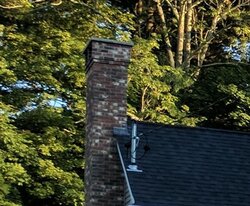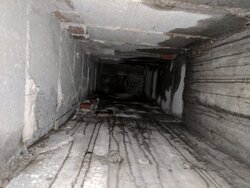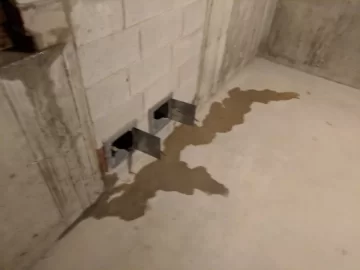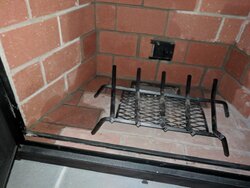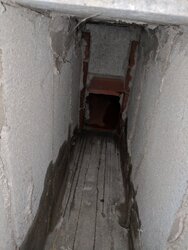Hello,
I purchased a new construction house with a wood burning fireplace last Fall. We live in New England and as seen in the news we have had two bad Nor'easters in the last few weeks. The first dumped inches and inches of wind driven rain on the area.
I had gallons of water in my ash pits in my basement, which ultimately leaked out into the basement. Not a flood, but probably 15 gallons of water in all. Never has water in my chimney before this. In addition, the bricks in the living room fire box were damp. Appears that rain was seeping in around the closed damper as well.
A camera shot from the ash pits shows the water running down the inside of the chimney walls (attached). The local chimney company said this is because I have a bluestone cap on my chimney (photos attached), which in bad wind driven rain storms will allow water into the chimney.
This storm was bad 50-75mph winds with 12 hours plus of wind driven rain.
Is this really normal? Logic would say yes considering the very bad wind driven rains. Makes me uncomfortable nonetheless.
Thanks.
I purchased a new construction house with a wood burning fireplace last Fall. We live in New England and as seen in the news we have had two bad Nor'easters in the last few weeks. The first dumped inches and inches of wind driven rain on the area.
I had gallons of water in my ash pits in my basement, which ultimately leaked out into the basement. Not a flood, but probably 15 gallons of water in all. Never has water in my chimney before this. In addition, the bricks in the living room fire box were damp. Appears that rain was seeping in around the closed damper as well.
A camera shot from the ash pits shows the water running down the inside of the chimney walls (attached). The local chimney company said this is because I have a bluestone cap on my chimney (photos attached), which in bad wind driven rain storms will allow water into the chimney.
This storm was bad 50-75mph winds with 12 hours plus of wind driven rain.
Is this really normal? Logic would say yes considering the very bad wind driven rains. Makes me uncomfortable nonetheless.
Thanks.


